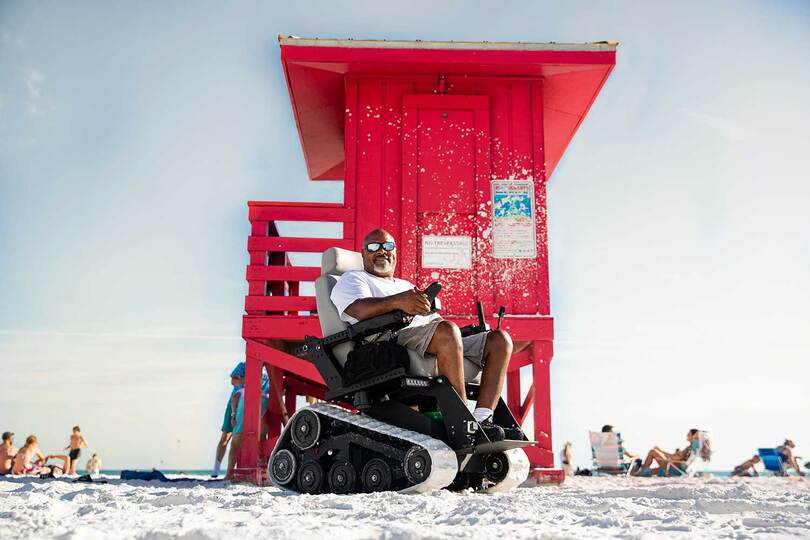'People perceive that there’s no market for accessible travel – it’s totally wrong'
Hearing customers say, “I didn’t think I’d be able to do this”, is perhaps the greatest compliment Lynne Kirby and her team can receive.
“It takes booking holidays to a whole different level,” Enable Holidays’ managing director Kirby told TTG’s first Accessibility Seminar.
Kirby and several other accessible travel specialists used the platform to urge the industry to support and embrace inclusivity by creating more accessible travel product, taking steps to build knowledge of the sector, and breaking down barriers.
She told agents not to be afraid of making mistakes when engaging with travellers who have additional needs.
“We’re all human,” she said. “Get to know them, ask lots of questions – get the same details about their holiday you would anyone else’s. Talk to the person rather than their carer. You sometimes have to ask intrusive questions.”
The challenges facing disabled travellers were laid bare by Inclu Travel chief executive Richard Thompson, who said the industry’s global supply chain still had “very little understanding” of the right way to support customers with additional needs.
Thompson described accessible travel as “the last untapped market” which, despite a sixth of the world’s population having a disability, he said was wrongly still seen as being “niche” owing to the industry’s “fear of getting it wrong and not knowing where to start”.
“The industry needs to educate everyone about the scale of opportunity,” he said. “We, as an industry, need to say, ‘we can do this’. We must – morally, ethically, commercially, legally. This is such an exciting opportunity.”
Thompson said “the vast majority” of disabled travellers do not want to be marketed to as being disabled and would rather travel companies market to them on the basis of destination and experience. He added there was an opportunity for the industry to help “a vast community” of potential clients regain their confidence to travel.
Gill Standeven, Visit Florida’s travel trade account director, said the destination welcomes around 130,000 visitors with accessibility needs every year. She highlighted Visit Florida’s online information hub, which has around 8,000 articles, blogs and videos, to help agents overcome any accessibility shortcomings they have.
“We’re adding to it all the time,” said Standeven. “We want to be the best state in the US for visitors with accessibility needs and we feel like we’re already excelling,” she said.
Monique Dior Jarrett, model, dancer and accessibility advocate, shared the inconsistency of the experience she has had flying as a full-time wheelchair user and of booking accessible rooms.
"I find myself apologising when travelling with my dance troupe as I know things are going to be a bit more difficult because of me,” she said. “I’d love to be able to travel like everybody else and not have to stress and worry, which happens all the time.”
Jarrett took part in Celebrity Cruises’ All Inclusive Photo Project last year, which aimed to increase the use of inclusive imagery and representation in travel marketing. “For that to be given out free-to-use so no companies can say they couldn’t be representative because they didn’t have the imagery or couldn’t find the right models was amazing,” she said.
Thompson said the future of accessible travel lay with every stakeholder in the industry. “There’s no reason any tour operator can’t make adjustments to what they do,” he said. “Most inclusivity has nothing to do with physical barriers – if it’s not visible and you can’t find the information, you can’t go into a travel agency and do anything other than a beach holiday.
“People perceive there’s no market to be had – it’s totally wrong. We [specialists] can help educate and influence, but we can’t create the market larger companies can.”
Sign up for weekday travel news and analysis straight to your inbox

Tom Parry
Supplier Directory
Find contacts for 260+ travel suppliers. Type name, company or destination.













